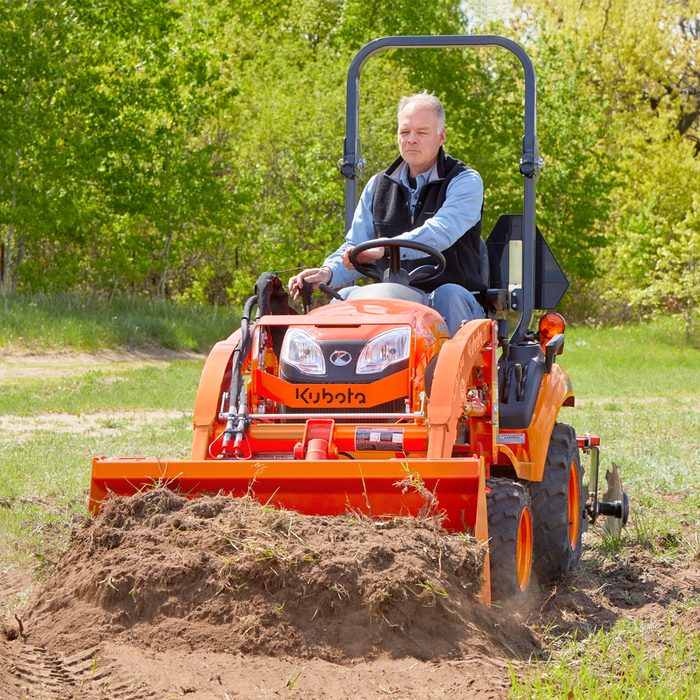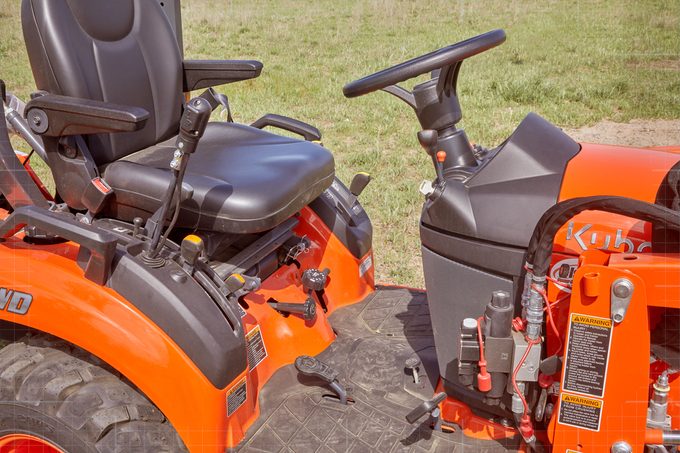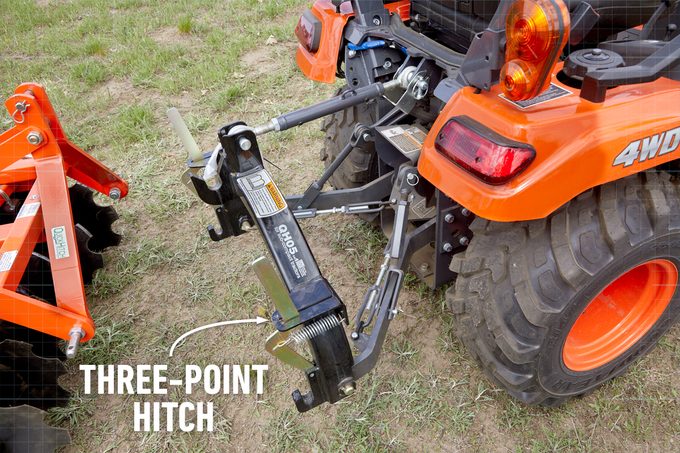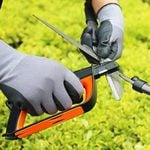What to Know About a Subcompact Tractor

With long-running diesel engines and chassis made for chores, tractors are workhorses for any landowner. If you measure your property in the thousands of acres, you need a full-size tractor. For those with 1 to 100 acres, consider a compact or subcompact tractor.
A tractor’s horsepower (hp) rating is one of the factors that determine whether a tractor is compact (about 25 to 50 hp) or subcompact (typically less than 25 hp). Specification charts aside, buy the tractor best suited for the tasks you need to get done.
If you need a tractor to lift round hay bales, choose a compact or larger model. For most homeowner chores, however, a subcompact tractor will work just fine. Many offer compact-tractor features in smaller, lighter and less expensive packages.
Know What Implements You’ll Need
I spent some time on a Kubota BX2380 ($13,615, suggested retail price) to learn the capabilities of a subcompact tractor.
When I set up a test with a local dealer, the first question he asked was, “What implements do you want with it?” That’s the thing about a tractor. It doesn’t do much on its own, but it can do a ton of work with the right attachments.
Tractor shopping begins with that “Whadda ya wanna do?” question. From there, you determine which tractor can do that work easily within your price range.
Popular attachments include:
- Front-end loader ($3,750);
- Mid-mount mower ($2,400);
- Scraper blade ($500);
- Disc harrow ($2,100).
These add-ons show how tractors work with different implements. Tractors use a hydraulic system to lift and articulate a front-end loader. A power-take-off (PTO) shaft drives the mid-mount mower.
Many rear-mount implements you’ll pull are simply lifted and lowered to work. You can also run powered implements, like a posthole digger or brush cutter, with a separate PTO at the rear of the tractor.
Three-Point Hitch System
To effectively carry and pull nearly any rear-mounted accessory, tractors use a three-point hitch system. This triangular steel attachment transfers the implement’s load to the drive wheels and lets you easily switch between implements.
Most subcompact tractors use a Category 1 three-point hitch, while the largest farm tractors feature Category 4 hitches. The three-point hitch on my Kubota BX had an additional quick-hitch accessory, allowing me to swap implements from the driver’s seat.
As the popularity of subcompact tractors increased, the availability of Category 1 three-point attachments blossomed, making subcompacts much more than just big lawn mowers.
Most Tractors Use a Hydrostatic Transmission
With its hydrostatic transmission, the Kubota BX tractor is a clutch-free automatic. Most subcompact tractors use a similar transmission. During my test drive, I was reminded of the unique character of this transmission and the tractor’s forward foot pedal.
While trying to fill the front-loader bucket, I needed more of the Kubota’s horsepower. I pressed down hard on the forward pedal as if I was driving that Polaris UTV and pulling a heavy trailer up a hill. With a hydrostatic transmission, that pedal-to-the-metal action essentially shifts the tractor into a higher gear range — the opposite of what I wanted. The tractor bogged down and I couldn’t fill the bucket.
I realized my mistake, backed off the foot pedal, put the tractor in low and 4WD, then eased the throttle and loaded the bucket. The tractor’s reverse employs a separate heel-operated pedal.
Some subcompact tractors use gear-driven manual transmissions. These are more efficient, meaning there’s more power for your PTO-driven implements plus better overall fuel mileage.
Consider Comfort
Because you might sit on a tractor for hours, think about comfort. You’re manipulating various controls, from drive and gear operations to hydraulics, hitches and PTO controls. Sometimes armrests help, and sometimes they’re in the way. And depending on your climate, a cab could be essential.
A soft-sided cab that keeps out wind, dust and bugs can cost less than $2,000. A hard cab costs four times that but allows for heat and air conditioning, plus comfort features like a stereo. You can save money by buying an aftermarket cab, but spending more for a factory-made cab system ensures a perfect fit.





